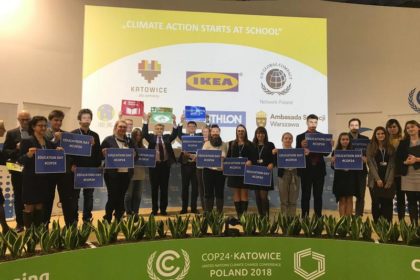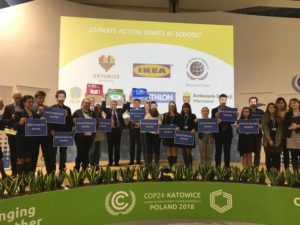
Governments have adopted a robust set of guidelines for implementing the landmark 2015 Paris Climate Change Agreement. The implementation of the agreement will benefit people from all walks of life, especially the most vulnerable.
The agreed ‘Katowice Climate Package’ is designed to operationalize the climate change regime contained in the Paris Agreement. Under the auspices of the United Nations Climate Change Secretariat, it will promote international cooperation and encourage greater ambition.
The guidelines will promote trust among nations that all countries are playing their part in addressing the challenge of climate change.
The President of COP24, Mr. Michal Kurtyka of Poland, said: “All nations have worked tirelessly. All nations showed their commitment. All nations can leave Katowice with a sense of pride, knowing that their efforts have paid off. The guidelines contained in the Katowice Climate Package provide the basis for implementing the agreement as of 2020”.
The Katowice package includes guidelines that will operationalize the transparency framework.
It sets out how countries will provide information about their Nationally Determined Contributions (NDCs) that describe their domestic climate actions. This information includes mitigation and adaptation measures as well as details of financial support for climate action in developing countries.
The package also includes guidelines that relate to:
- The process for establishing new targets on finance from 2025 onwards to follow-on from the current target of mobilizing USD 100 billion per year from 2020 to support developing countries
- How to conduct the Global Stocktake of the effectiveness of climate action in 2023
- How to assess progress on the development and transfer of technology
The UN’s Climate Chief, Ms. Patricia Espinosa said: “This is an excellent achievement! The multilateral system has delivered a solid result. This is a roadmap for the international community to decisively address climate change”.
Despite the progress made at this year’s talks, some believe that the UN process will always be too slow to measure up to the scale and urgency of the problems, and new ways should be found to take action independently.
The next COP meeting will take place in Chile in the second half of 2019.
See also: https://unfccc.int
Source: UNFCCC, 15 December




